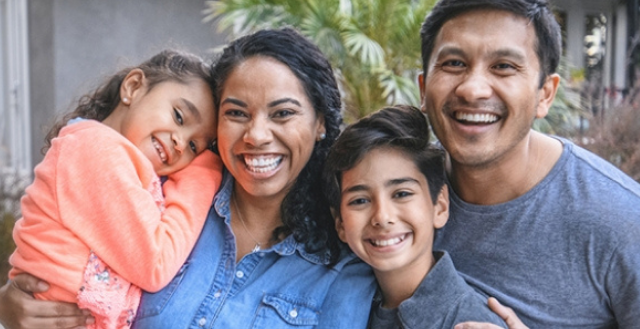The University of Texas at Tyler’s new School of Social Work opened this semester, with hopes to train and retain social workers in East Texas.
Boasting nearly 1,000 nonprofit organizations out of Tyler alone, the needs for social workers across the region are vast.
In the second installment about social work in East Texas, The Tyler Loop focuses on two powerhouse organizations with social work-centered resources and employees: The Alzheimer’s Alliance of Smith County and Texas Children’s Health Plan. Read our first installment, focusing on UT Tyler’s School of Social Work, here.
The Tyler Loop sat down with Stephanie Taylor, executive director of Alzheimer’s Alliance of Smith County and Maggie Edwards, licensed social worker and certified case manager at Alzheimer’s Alliance of Smith County; and Kristi Lemmert, licensed clinical social worker and assistance director of care coordination for Texas Children’s Health Plan.
The Alzheimer’s Alliance of Smith County
The Alzheimer’s Alliance, an independent nonprofit in East Texas since 1982, provides support to people living with dementia and their caregivers. Alzheimer’s, called the silver tsunami, is a growing illness and the sixth leading cause of death with no treatment and no cure.
While there are medications designed to slow symptoms, the health of both dementia patients and their caregivers is at risk.
“What we see is that caregivers’ physical health and mental health is often worse than the person that they’re caring for living with dementia,” said Taylor.
Taylor said the organizations started small. “We started with a single support group… and now, we have a great variety of services to support anyone who is diagnosed with any form of dementia. A critical component of that is social work, and so we’re really excited about the UT program.”
Taylor said the healthcare community can treat the physical components of dementia, while the Alzheimer’s Alliance focuses on emotional and mental support aspects.
“We have a partnership with UT Tyler called the MARC, which is the memory assessment and research center. Maggie, our social worker, does memory screenings and they’re free,” said Taylor.
“We encourage people to get their memory screening screened, just like they would their blood pressure or cholesterol. It should be a normal part of your health regimen.”
Taylor said if the MARC screening indicates cognitive decline, the Alzheimer’s Alliance can refer for a full assessment with a diagnosis.

One of Edwards’ primary roles as the Alzheimer’s Alliance’s social worker is to help clients create and understand their support network.
“I started doing hospital social work back in 1983 in Tyler,” said Edwards.
“I talk to the caregivers and I find out if they have a specific issue that they want to start out talking about, so that we can address that particular issue.
“Once I find out what’s on their mind, I give them some layman’s-term education about dementia, whatever type it is,” said Edwards.
Much of Edwards’ work educates caregivers about dementia’s effect on the brain and behavior of their loved one.
“A lot of times, people come in and they don’t understand that people who have dementia lose their ability to reason, and so you have to communicate with them differently.”
Edwards explains to caregivers how the disease destroys the brain. “Then they start grasping it and understanding more about what [their loved one with dementia] is going through,” said Edwards.

Edwards is also there to help caregivers navigate the healthcare maze. “It’s really confusing if you don’t have experience with physicians and Medicare and Medicaid,” she said.
As for what to expect when dealing with a dementia patient, Edwards said, “They are going to be repeating questions over and over again. They’re going to be losing things all the time. They’re going to be hiding things. They’re going to get agitated. They’re going to get belligerent….Just all of the day to day things.”
For caregivers, depression, anxiety and physical health worsens. “Forty percent of caregivers experience severe depression more than someone who’s a non caregiver,” said Taylor. “If you can get supportive services early in the process, you’re going to have much better outcomes.”
The toll on those caring for dementia patients can be fatal. Edwards said, “They need to take care of themselves,” said Edwards. “Frequently, caregivers will die before the people living with dementia. They’ll run themselves into the ground, because it’s so overwhelming.’
Among the Alzheimer’s Alliance’s popular programs is Day Club. “We’ve been doing Day Club for about 25 years. People who are living with moderate Alzheimer’s or related dementias can come. And it’s a great social environment,” said Taylor.

“We do art therapy, music therapy, physical activity, breakfast, lunch. It’s just fun: singing, dancing, we play games. I am excited for the [UT Tyler] School of Social Work to rotate as many students through there as volunteers for clinical hours as we can.”
Taylor said social workers in training help provide a one to one patient-volunteer ratio at Alzheimer’s Alliance activities. The experience of working directly with dementia patients will equip social workers to provide better care when they begin their careers, Taylor said.
Edwards said for her, social work is a ministry. “Before I come to work in the morning, I pray that God would give me the Holy Spirit to enable me to use my mind and my words and my listening in the way that it needs to be for the particular client that I’m talking to.”
Imagining East Texas without Alzheimer’s Alliance, Taylor said the network of resources would be more difficult to navigate. “It would probably be a lot more chaotic and the care would be more fragmented,” said Edwards.
Texas Children’s Health Plan
Texas Children’s Health Plan, founded in 1996 by Texas Children’s Hospital, is the nation’s first health maintenance organization (HMO) created just for children. The organization covers kids, teens and pregnant women eligible for Medicaid or the Children’s Health Insurance Program (CHIP).
In Northeast Texas, Texas Children’s Health Plan serves 5,523 members in 39 counties. The East Texas office has existed since 2016.

Lemmert said the organization is owned by Texas Children’s Hospital in Houston, and acts as an insurance company for disabled children.
“We focus on kids and we focus on disabled children from birth to 21 years old with mild sorts of disabilities all the way to terminal illness and everything in between,” said Lemmert.
Social workers are an essential part of the organization’s work. “Our service coordinators are made up of social workers and nurses who visit our kids in their homes. They do all kinds of things that would keep that kid in their home, in their community, in their environment. We don’t believe that kids should grow up in institutions, no matter how sick you are,” said Lemmert.

Texas Chlidren’s Health Plan serves 5,523 members in 39 Northeast Texas counties. 
📷 courtesy Texas Children’s Health Plan
Understanding people in the context of a holistic system is an advantage social workers bring, said Lemmert. “We don’t separate out their mental health, their physical health, their situation, how they live, how they work. We understand that all those things work together.”
Additionally, at social work’s core is the intrinsic worth of dignity of everyone. Lemmert said, “Every person has value and it’s our job to support them in whatever season of life they may be in.”
In addition to treating children with physical disabilities, Texas Children’s Health Plan covers mental illness. “Something I’m really proud of our organization about is we cover kids with severe persistent mental illness. Those kids and their families deserve our support and attention and the best of everything we have to give them,” said Lemmert.
Lemmert said UT Tyler’s School of Social Work will help promote the value of the profession. “One of the reasons I’m so excited for UT to have social work is we as a profession for so long have been under-marketed, underutilized.

“We will get the opportunity to show those [UT Tyler social work] students you can do all kinds of things. You’re not going to be relegated to sit over in the corner filling out paperwork. We are all over this town. We’re all over the state. And we do some really amazing things in this community. And we sit in some pretty amazing positions,” said Lemmert.
Lemmert finds social work’s difficulties the very reason for its high rewards. “You really get to see people in possibly some of the worst situations they’ll ever be in, and as a social worker, an opportunity to intervene and help is one of the most rewarding things,” she said.
Lemmert looks forward to a future with career-ready social work graduates from UT Tyler. “The social work school, I think it’s going to be a game changer here in East Texas.
“They’ve got big ambitions, right? We’re starting with a bachelor’s program, but the ultimate goal is to have the master’s program. I’m excited to be able to help them in whatever way they can to produce the future wave of social workers.”
Love what you're seeing in our posts? Help power our local, nonprofit journalism platform — from in-depth reads, to freelance training, to COVID Stories videos, to intimate portraits of East Texans through storytelling.
Our readers have told us they want to better understand this place we all call home, from Tyler's north-south divide to our city's changing demographics. What systemic issues need attention? What are are greatest concerns and hopes? What matters most to Tylerites and East Texans?
Help us create more informed, more connected, more engaged Tyler. Help us continue providing no paywall, free access posts. Become a member today. Your $15/month contribution drives our work.









